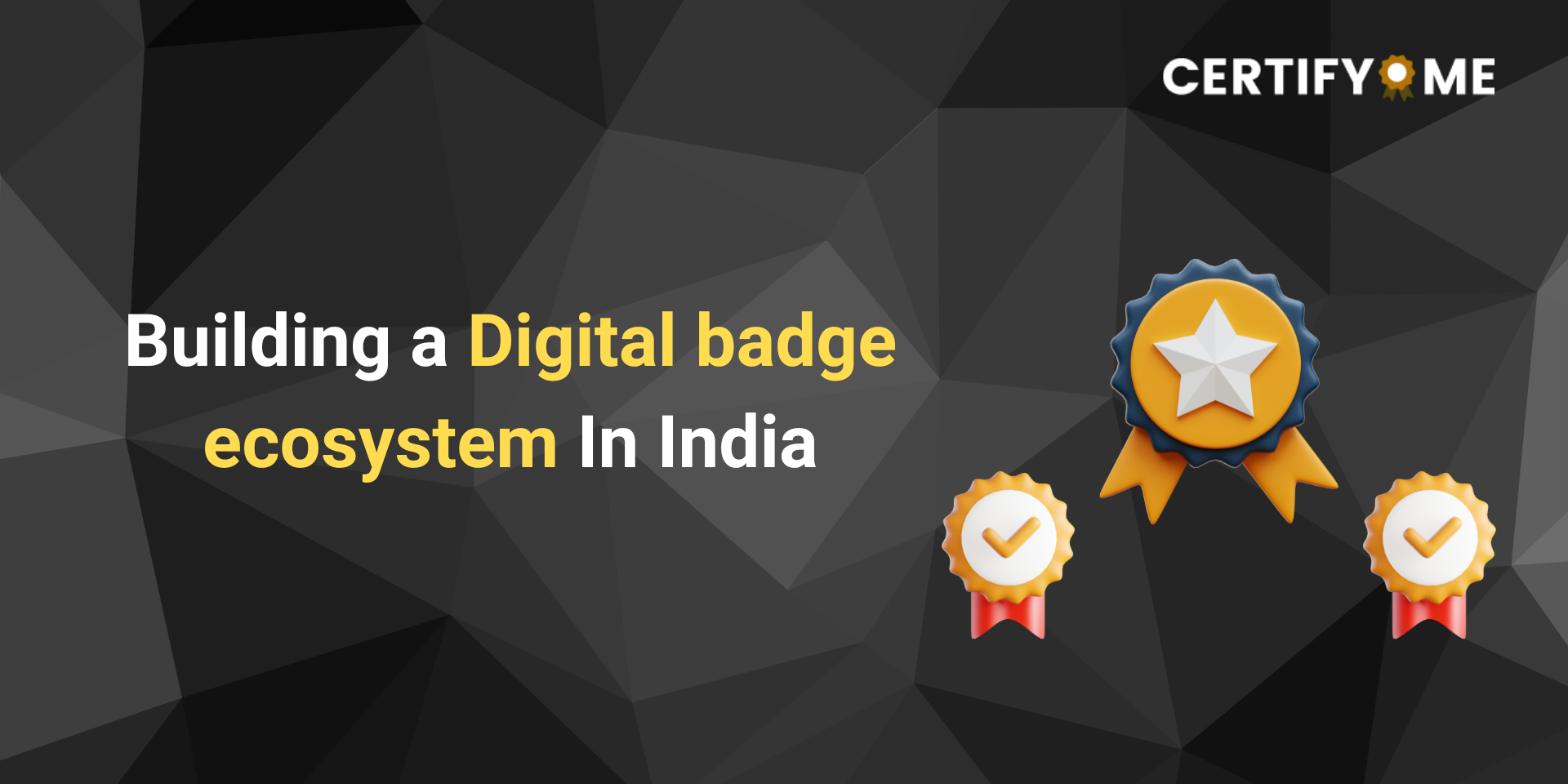The appearance of COVID-19 has caused global outrage and caused severe damage to world economies. Education was no exception, as lockdown tactics led to academic institutions sealing their locations and nations closing their borders. Additionally, as digitization permeates all educational situations, schools and institutions must modify their curricula and instruction to remain relevant.
In a variety of fields, digital credentialing has altered how students’ accomplishments are acknowledged and how the entire curriculum is taught. This maintains the focus of education on the upskilling of learners and the flexibility of information delivery. Further shifts in education will undoubtedly occur due to the increasing acceptance of digital credentials.
The Era of Everything Digital!
The requirement to reskill is crucial when technological advancements increase. In the modern day, it is necessary to digitalize educational institutions by utilizing artificial intelligence and machine learning technology. The first phase in the university’s digital transformation is the issuance of digital credentials through a blockchain-based credential platform. As a result of the broad adoption of digital credentialing technologies, a procedure for creating a standardized foundation on which such credentials can gain value in the labor market has been built.
Blockchain technology is already being used by EdTech companies to enhance learning environments and training courses, like Udemy, Coursera, and Upgrad. EdTech companies are starting to issue digital credentials which are supported by safe blockchain technology and a cryptographic key that guarantees the data and information of the credential remain safe from online attacks. This is so that organizations and recruiters can readily examine the information because databases are maintained using blockchain technology.
Blockchain technology was first made available to India in the year 2020, and it has since revolutionized the credentialing procedures of corporations, educational institutions, and Edtech companies. The Indian government made the necessary preparations to introduce Blockchain technology to the nation after realizing its importance.
Personalized learning and competency-based learning are Rising!
Students who have the opportunity for personalized learning are more engaged in the classroom because they can take control of their education and make goals for the future. After a strategic transition in higher education institution leadership to individuals who work cooperatively with school staff, personalized learning is usually implemented successfully. Since each student’s success is guaranteed, the institution focuses on allocating resources and implementing systems and procedures that support it.
Digital credentials detangle the educational system, allowing for new opportunities to develop and encourage individualized instruction. Learners can now build numerous knowledge and skills at their own pace instead of being pushed through the system in the context of a peer group. As a result of this demand for knowledge and skills, a growing number of professionals have resorted to adopting different credentials to keep current with industry trends while gaining new skills to help them in their professional life.
Why do they need digital credentials in India to cut down on the price of hiring individuals who aren’t qualified?
Technology in the verification business is beginning to take over where traditional methods like resumes and recommendations have fallen short. Among other things, the HR process is increasingly relying on digital credentials. A digital certificate is an electronic acknowledgment of a credential or certification obtained, a demonstration of competence, or a career accomplishment.
The institution or organization that granted the credential, the date it was issued, and, if applicable, the expiration date, as well as a description of the professional qualification, are all included in each credential. Additionally, each credential also contains secure metadata about the recipient, such as their accomplishments and professional practices.
Furthermore, the blockchain technology that underpins these digital credentials is reliable. Instantly verifiable, digitally shareable, immutable, and interoperable, blockchain-based credentials are the way to go. Because these credentials are based on decentralized applications that keep track of each certification transaction.
Building a Digital badge ecosystem In India:
Businesses must put a strong emphasis on digital technologies to streamline their learning guidelines as they deal with new business issues in a changing workplace. One such strategy to transform the way certifications are presented, validated, and shared is the use of digital credentials.
The idea of a digital credential environment suggests that many businesses and people may easily speak with one another, but since today’s interactions are governed by so many different technologies, it is getting harder to keep up with the most recent developments. The leading companies in the sector must therefore understand how open standards support their digital credentialing strategies in order to offer people long-term value while avoiding exorbitant integration costs.
However, as technology advances, a wide range of features and possibilities for competitive advantage emerge outside of a company’s traditional borders. These skills are forming a slew of new ecosystems. Connectivity into external ecosystems would compel digital management enterprises to connect with a majority of integrated systems in the future.
Digital badging is delivered as an applicable solution or as a solution by a company, customized for another organization or institution, just like in the gamification system. Commercial systems provide the same functionality as free software ones. The distinction is that commercial systems handle all aspects of hosting, creating, and connecting all the information for badges.
The platform provides assistance and comprehensive guidelines on how to acquire and display the badge on outside platforms when a user wins a badge. The user needs to have an account on the paid platform for that, and there is a chance that they could lose their badges if indeed the platform shuts down.

 Author :
Author : 







